Assumption University PHI-151-06 SP2020: Kant's Ethics Quiz
VerifiedAdded on 2022/09/18
|5
|780
|16
Homework Assignment
AI Summary
This assignment presents a student's responses to a philosophy quiz focusing on Immanuel Kant's ethical theories. The quiz covers Kant's critique of Hobbes and Bentham, the grounding of his moral principles, and the distinction between hypothetical and categorical imperatives. It explores the concept of a "good will," how one determines the "good" in Kant's system, and the role of maxims. Additionally, the assignment addresses Kant's categorical imperatives, including the Universal Law Maker and the Humanity receiver, as well as the Formula of Autonomy. The student provides concise answers to each question, demonstrating an understanding of Kant's deontological ethics, the categorical imperative, and related concepts like autonomy and respect within his moral framework, referencing key texts and formulations of Kant's ideas.
1 out of 5
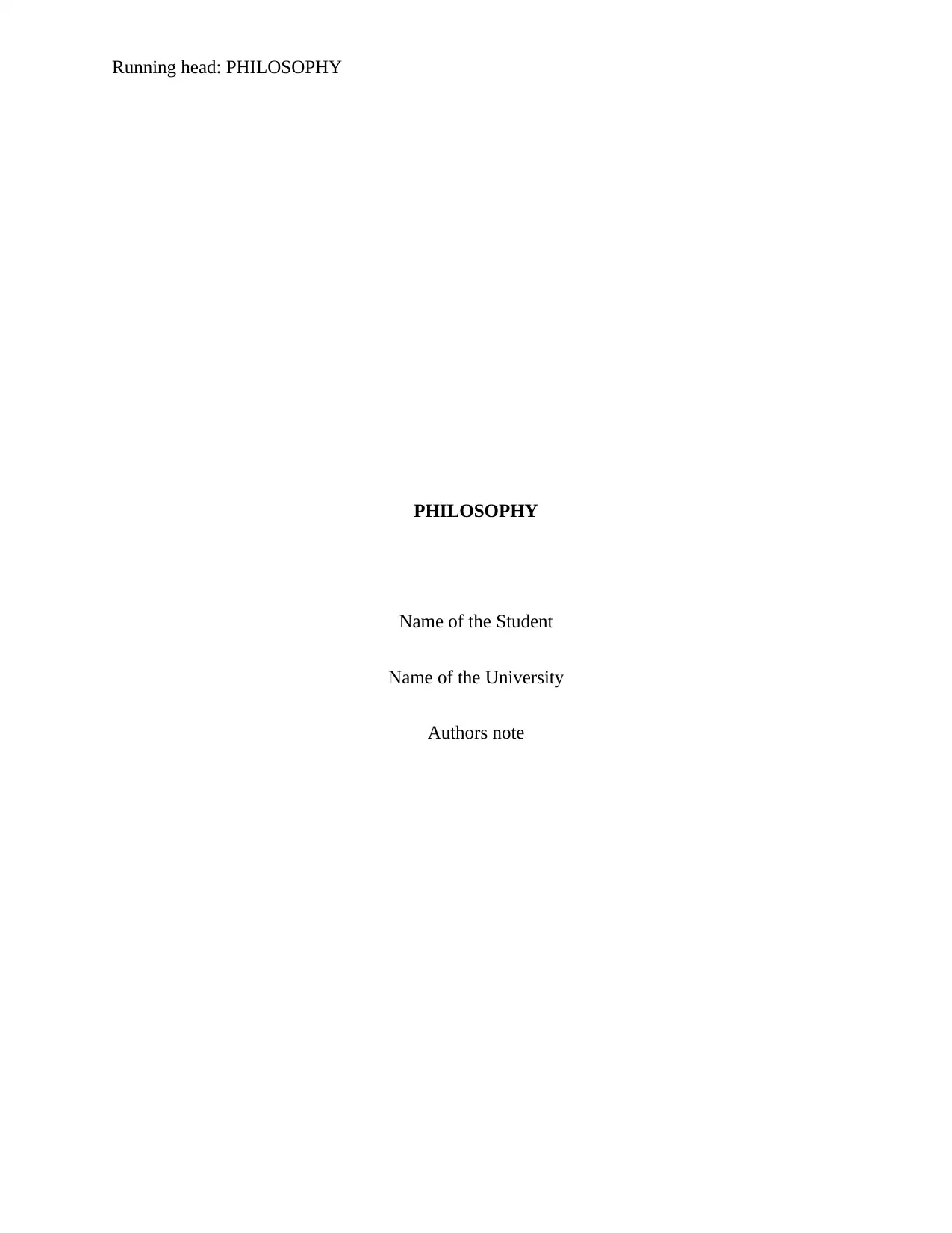
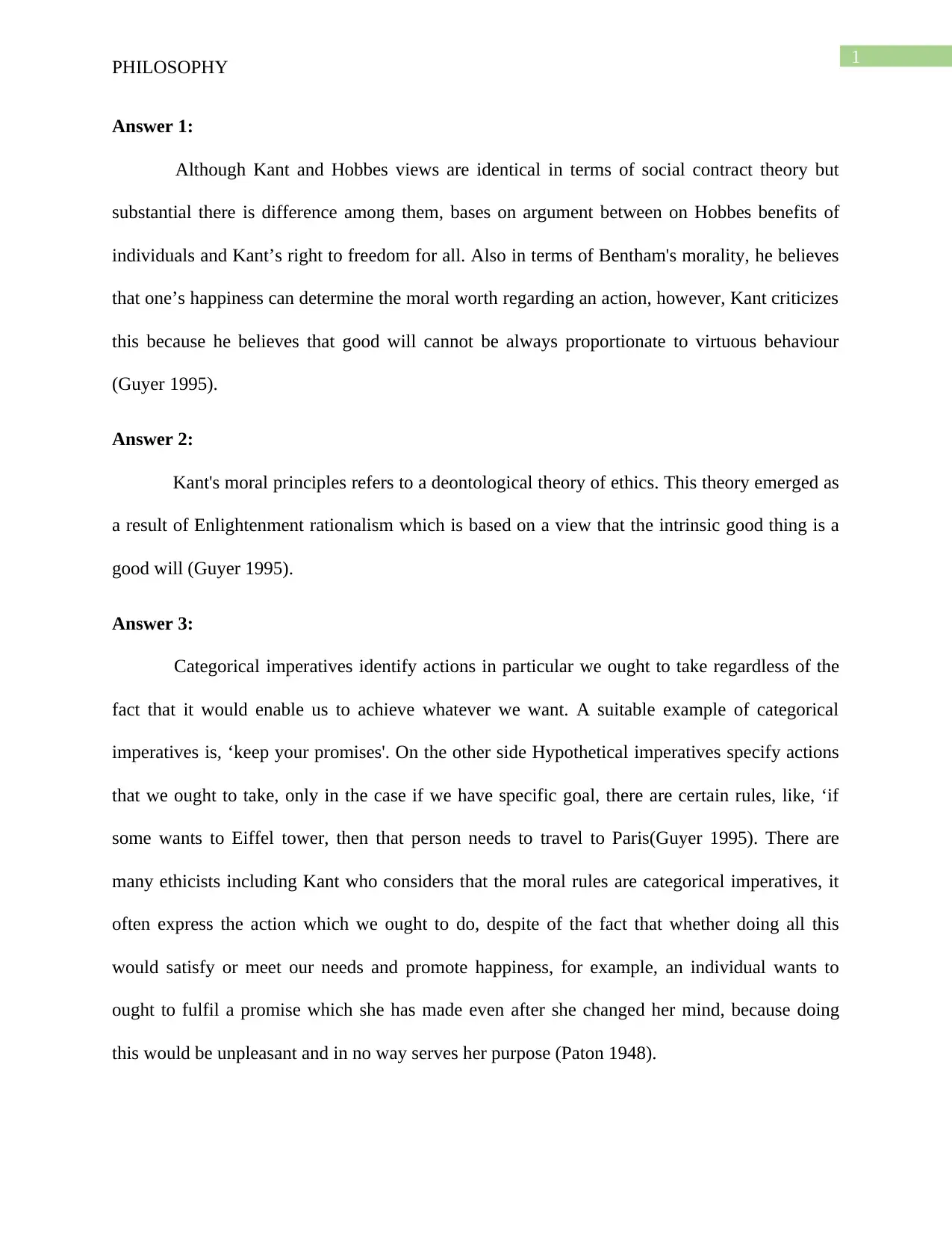
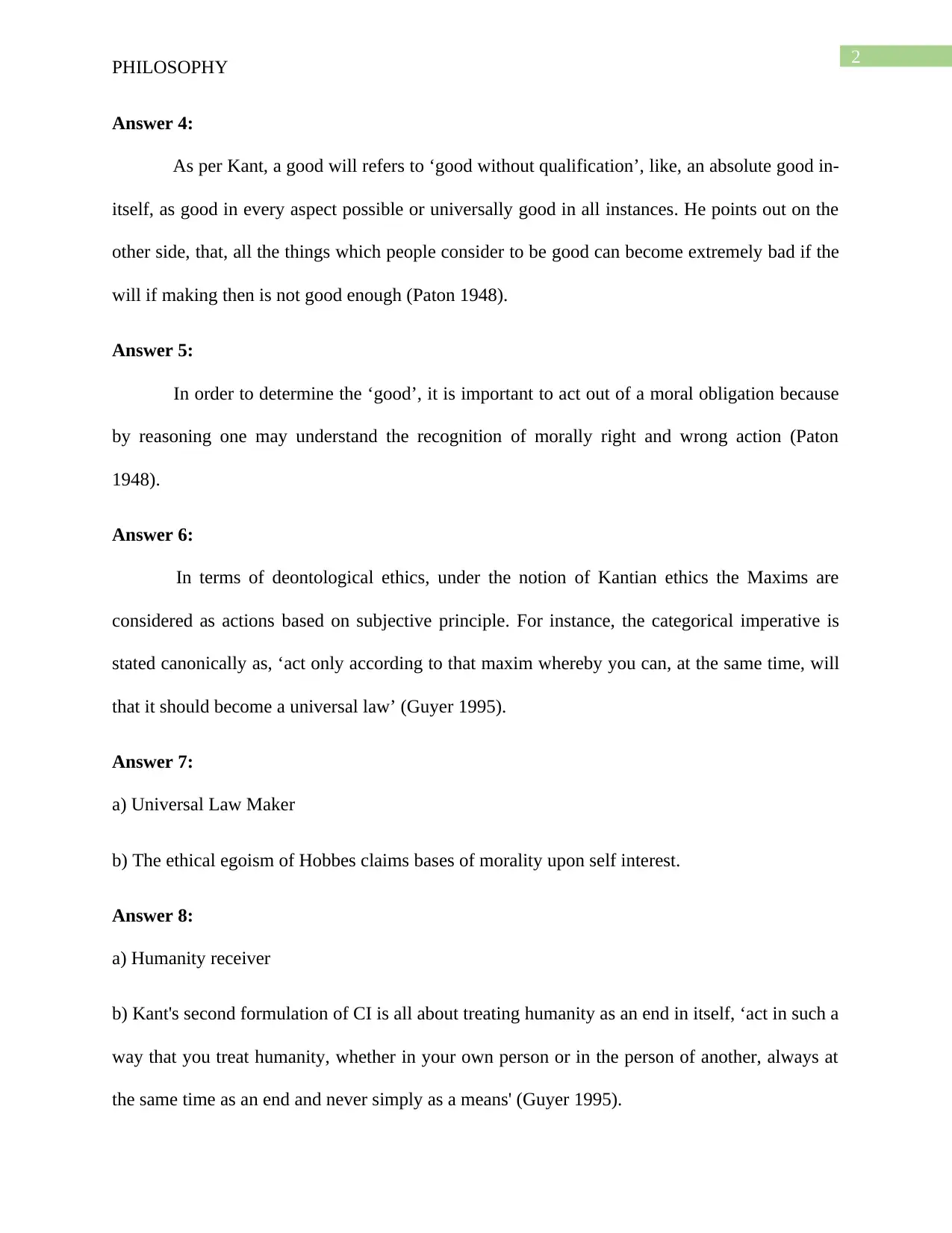

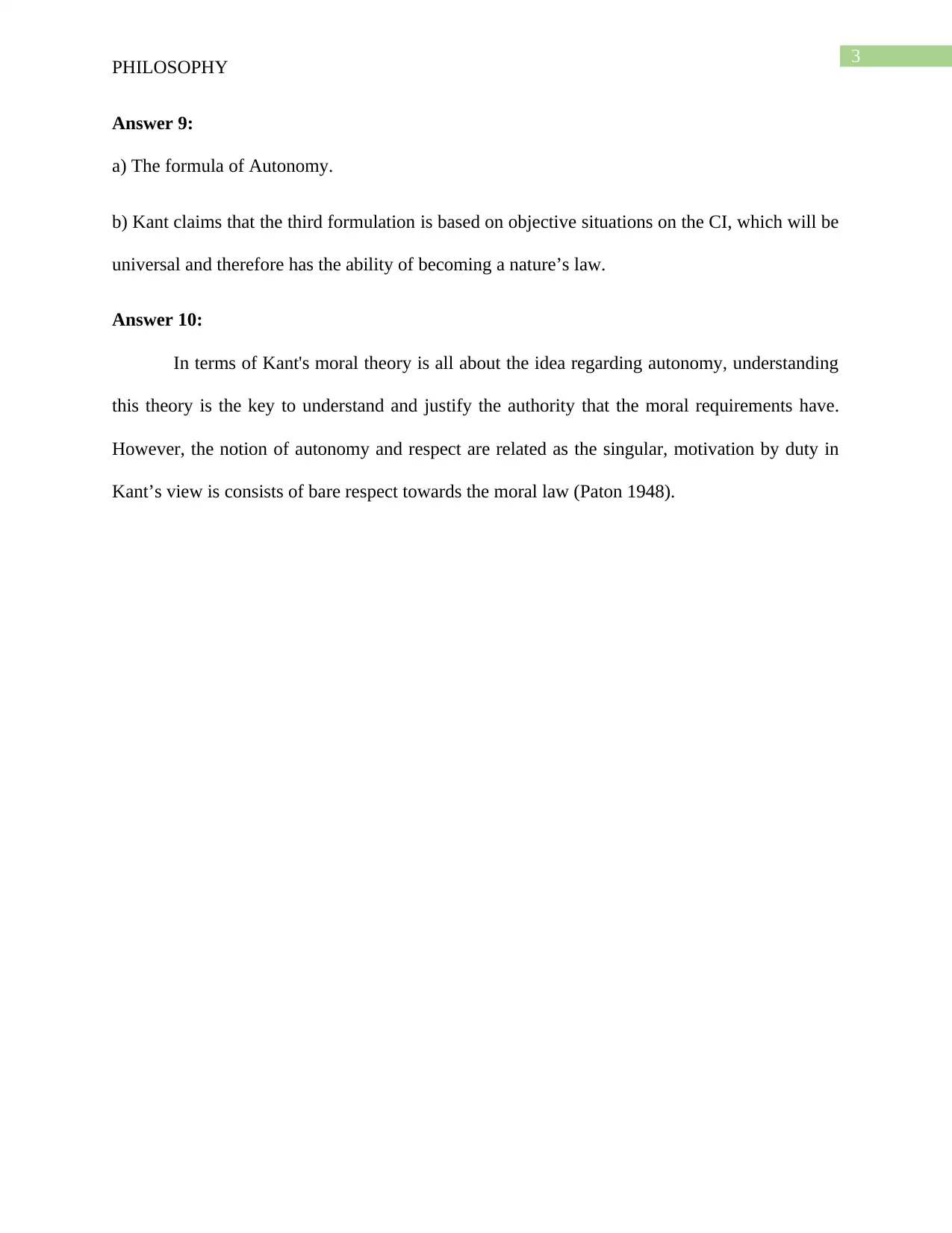
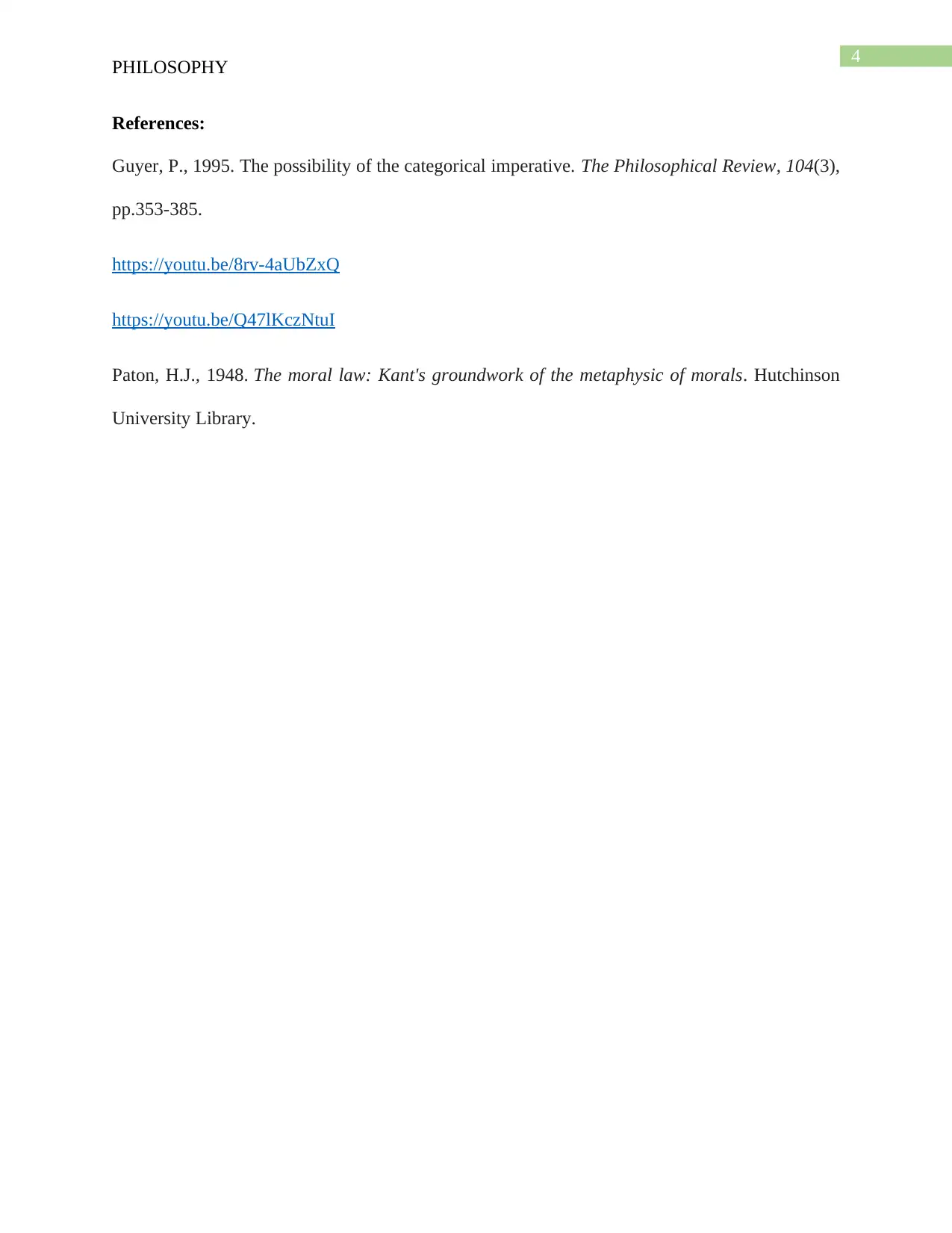






![[object Object]](/_next/static/media/star-bottom.7253800d.svg)